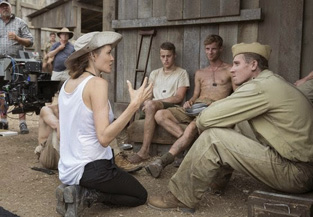|
|
They Shoot Oscar Prognosticators, Don't They?The Sony Leaks: Politics, Oscar and Hollywood’s “Women Problem”By J. Don BirnamDecember 23, 2014
So, if we accept that awards (a) are not – cannot - be solely about merit; and, as a corollary, (b) are given out for silly reasons including rewarding an individual for perceived past slights, then, surely, giving credit to an entire segment of the population in the face of a long history of past unfairness towards that group should be both palatable, more meaningful and hopefully even as transcendental than the former reasons. I’m not saying the Oscars should look to award women and racial minorities until the numbers are evened out (it would take them over a century to achieve this). And, if I had a ballot, I would like to think I would fill it out mostly on merit. I merely mean that the time has long passed for the supposedly liberal bastion Hollywood to open its eyes to other stories beyond the straight-white-male narrative. In a year where a film appealing precisely to that, and with men in its name (Boyhood), is about to take the top prize, we simply cannot deny that stories about men have a natural advantage. Boyhood has resonated very well with men (including being named the top movie of the year by both New York Times film critics, and the President himself), and men make up more than three-quarters of the Academy. Boyhood’s win is poised to mark yet another link in the endless chain of male-domination in Hollywood. So, if alongside yet another coronation of the triumph of the male, we manage to sneak in a few votes for a brave, tireless, and ambitious female actress turned filmmaker, and some for a charming, talented, and fascinating young African American female director, would that be such a bad thing? On the contrary, I posit, it is arguably the right thing.
|

|
|
|

|
Thursday, April 25, 2024
© 2024 Box Office Prophets, a division of One Of Us, Inc.


